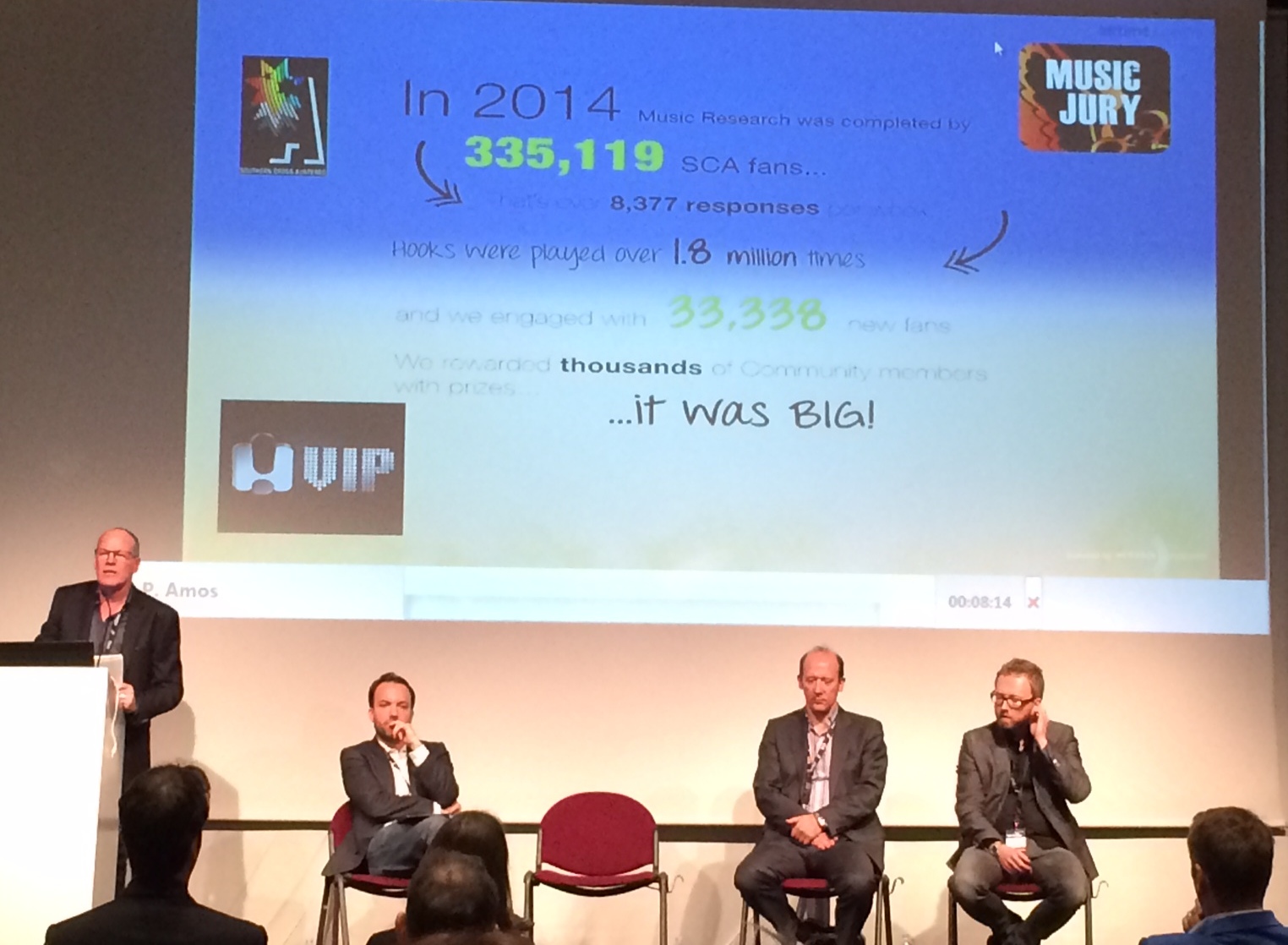With changes in technology, music research has moved from playing music hooks in auditoriums or over the phone, to online and on smartphones.
“It is vital that research now uses smartphones,” was the message from a panel of experts in a RadioDays research session titled Research is the new Oil.
“Online research has come into its own,” said Paul Amos from Xtra Research Australia.
Research has become “an ongoing converastion with your community.” Research panels are now as much about marketing as research, according to Amos.
“Building an online community for research is a massive commitment. You have to be fully committed to engagement tactics with the community you are researching.”
He quoted Triple M’s Mike Fitzpatrick discussing the Triple M music jury: “The people we research want to be listened to, they do it because they want to add value to our station, not just win a prize. They want to be part of a community.”
Amos also advised that if you do music research by sending email to your research group, make sure those emails are ‘on brand.’
“It is about how you engage with the community. If you send emails asking for people to complete a survey, make them compelling emails. Put in videos and pictures, don’t just send text. Research is now as much about marketing as research.”
Austereo’s Rate the Hits research project has an app, which is branded with the same exciting images as the stations, and is easy to use for the music panel.
“You should build rapport through surveys, to make the people you research, not just survey takers but your greatest fans. When the relationship gets deeper so does the result,” said Amos.
Paul Amos’ Research Tips:
- Get your fans on the air talking about the difference they made to the station and how great it is to be a member of the community
- Make the people in the survey feel important by putting the spotlight on them, for example, feature fans’ favourite songs in the weekly countdown
- Create a closed facebook group for the most active members of the community. The conversations that happen there may be difficult for you, but will be very informative.
- Offer them exclusive content such as advance tickets or special visits to the station. It is an extension of your marketing department, not just a research panel.
- Surprise and delight them, for example, with entriers into a prize draw without them even having to ask you. Don’t just communite about surveys, tell them about other interesting things too between asking them to complete a survey.
- Organise a meet and greet
- Put on an exclusive event.
In the same session, Raul Domingo from Know Media Spain, said his company tries to get to know the emotional response to music through research. “Adapt data collection processes to the changes in consumer behaviour,” he said.
Since music stations have been doing research in Spain, music radio has finally beaten talk radio formats for the first time.
Torsen Birenheide, Program Director at one of Germany’s biggest stations said people don’t want to talk to survey people on the phone anymore.
“My grandmother is stuck at home all day with no one to talk to. She’s the only one who likes to take phone surveys any more. With an online survey you can tell the station what you think, without having to spend lots of time talking to a stranger. If you are doing it online at work you can stop the survey part way through if the boss comes in.”
He said record companies now want to use his station’s research system to help them decide which single they should release from their artists.
They also survey how people feel about the topics talked about in the breakfast show. It is a content focus group style study online.
His station also tests big money promotions before launching them. “I had an idea to give away one months rent. We asked our panel how intersting this would this be for them. The response was high and it was right – we had lots of responses to that promotion. You know a promo will work before you put it ona air, there’s no more painful mistakes, no more wasted ideas.”
But his final warning was, “do not test everything, also trust your gut feelings.”

